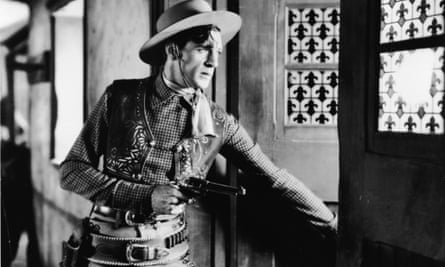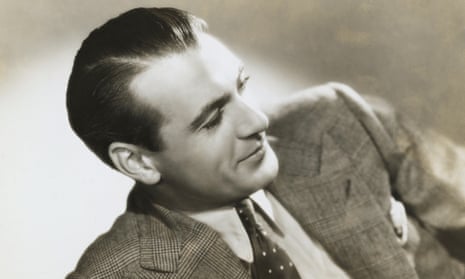Gary Cooper, whose death is reported on page one, was born in 1901 in the cowboy country of Montana of British parents who had emigrated from Buckinghamshire and as Frank James he was sent to England at the age of 10 to attend Dunstable Grammar School. He disliked his schooling, although he remembered in later years with affection his stay in England and after three years he returned to the United States. His first job was as a cartoonist on his local paper at Helena, Montana, where he made quite a hit with his drawings of election candidates.
He started his career at Hollywood when he moved with his parents to Los Angeles and worked as an extra until 1925, when he was given his first important part in The Winning of Barbara Worth. The Paramount studios quickly recognised his value and for the rest of his life he was to be seen rounding up cattle, punching ungentlemanly drunks, and generally being a scourge of the badmen of the West. He had been twice to England since the war – in 1953 for a film premiere at which he was presented to the Queen and in 1960 to make his first “whodunit” picture, The Naked Edge, at Elstree.
In 1933 he married Veronica Balfe, who kept her stage name of Sandra Shaw. They had one daughter, Maria, who was born in 1938.

The popular image of Hollywood was created by a few men and Gary Cooper was one of them. His contribution was not a commercial or an artistic one; as a film star for 30 years, he was simply one of the legends on which Hollywood ultimately depended for its success. Unlike many of the others – Garbo is an obvious example with her European wistfulness – Cooper’s legend was essentially an American one. For foreign audiences, in fact, he symbolised the ideal American: a manly, handsome frontiersman, capable of being tough but with a shy, courtly manner.
An earlier generation had found the same symbolic figure in Owen Wister’s Virginian, that finest of all cowboy stories and it was no coincidence that Cooper’s best roles were as similar laconic, knightly Virginians in a series of Hollywood cowboy films. It is as the king of cowboys that he will be remembered by this generation; but his huge output of films included some excellent light comedies. He had an expert sense of timing and a wryness that could make a dull line seem witty: many a gap in a script he filled with his mock self conscious smile, the mark of a shy man who is nevertheless master of every situation.
He began as an artist: “I had a mild talent,” he once said, and his modesty was such that he would have claimed no more for his film acting. Unlike so many film stars, he kept the same wife, was a family man even out of the public eye, and needed no stunt men to stand in for his heroic deeds as a cowboy. The conviction behind his Westerns – he made sense of even the most fanciful script– perhaps arose from his dislike of faking on or off the screen and certainly the essential honesty of the man gave the legend an extra shine.
Older filmgoers will recall him as the perfect Hemingway hero of A Farewell to Arms and For Whom the Bell Tolls, and it is said that Hemingway created Robert Jordan in the latter novel with Cooper in mind. Mr Deeds Goes to Town and Sergeant York were two other excellent examples of his range, and High Noon was probably his best cowboy performance, combining the romanticism of the typical Western with a realism that helped to make the film a classic.
Hollywood, however off hand it was with some of its other legendary stars such as Chaplin, awarded Cooper more than one Oscar and he was completely loyal to the industry in return. His good looks and such acting ability as he had seemed made for the cinema. In rehearsals he could appear no more than a handsome diffident American, but on the screen he gained extra authority and a remarkable visual eloquence. Known as “Coop” in Hollywood and generally admired for his professionalism (“You only have to tell Coop once,” said a director contrasting him with some of his fellow stars) he still played the hero even in his fifties. It was as if age could not affect him – or rather affect the legend – and if Hollywood’s image is more pleasant than it deserves, much of it is thanks to one or two film pioneers like Gary Cooper.

Comments (…)
Sign in or create your Guardian account to join the discussion